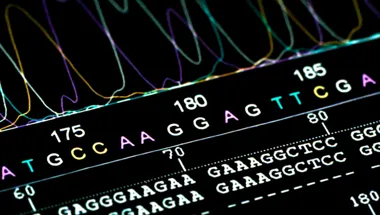
Biography
Maxim Freydin studied Biology and Biostatistics at Tomsk State University and earned a PhD in Genetics from the Research Institute for Medical Genetics in Tomsk, Russia. He gained post-doctoral experience at Karolinska Institutet (Sweden), University of Oxford, Imperial College London, and King's College London (Prof. Frances Williams group at The Department of Twin Research and Genetic Epidemiology).
From 2022 to 2024, Maxim served as a Lecturer in Medical Genetics at the School of Biological and Behavioural Sciences, Queen Mary University of London. In June 2024, Maxim re-joined the Department of Twin Research and Genetic Epidemiology as a Lecturer in Genetic Epidemiology. He leads a research group focused on genetic and omic studies of complex human diseases with a particular emphasis on comorbidity and inverse comorbidity, aging, and pain syndromes.
Since 2022, Maxim has also been the Specialty Chief Editor for Frontiers in Genetics: Human and Medical Genomics.
Research

Williams Group
Our research group investigates the genetic, and omic contributions to common complex conditions causing the greatest disability such as chronic widespread pain, low back pain, fatigue and age-related hearing impairment.

Freydin Group
The group investigates molecular basis of complex human diseases, using genetic and omics approaches.
Features
5 minutes with Maxim Freydin
Dr Maxim Freydin is a Lecturer in Genetic Epidemiology who has recently rejoined the Department of Twin Research & Genetic Epidemiology

Research

Williams Group
Our research group investigates the genetic, and omic contributions to common complex conditions causing the greatest disability such as chronic widespread pain, low back pain, fatigue and age-related hearing impairment.

Freydin Group
The group investigates molecular basis of complex human diseases, using genetic and omics approaches.
Features
5 minutes with Maxim Freydin
Dr Maxim Freydin is a Lecturer in Genetic Epidemiology who has recently rejoined the Department of Twin Research & Genetic Epidemiology

